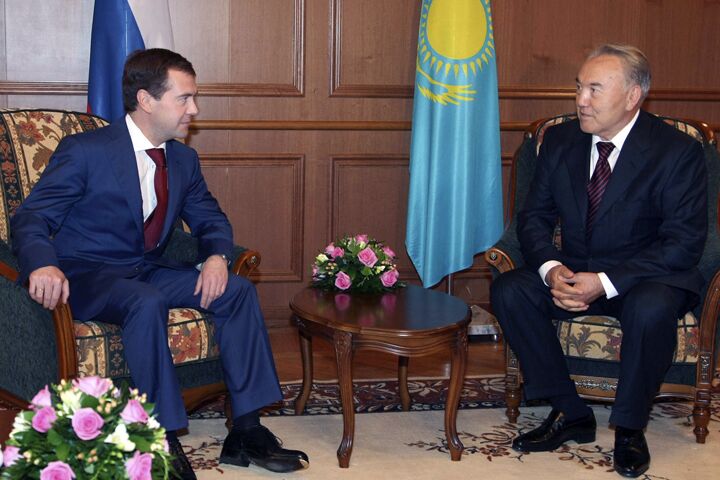
Russia, China Vie With Europe for Central Asia
Russia and China are vying with the European Union for influence over the former Soviet states of Central Asia. In a series of economic and political maneuvers that are reminiscent of the 19th-century “Great Game” between czarist Russia and the British Empire, Moscow and Beijing are working together in an attempt to keep the West out of this oil- and natural gas-rich region. Yet, even as these two Asian powers work to keep Europe away from the natural resource wealth of Inner Asia, they are also jockeying with each other for regional dominance.
After becoming president of Russia on May 7, Dmitry Medvedev wasted no time before he traveled to Kazakhstan to further cement his country’s access to Central Asia’s natural gas supply. By May 22, Medvedev was discussing natural gas issues with Kazakh President Nursultan Nazarbayev in Astana. During these talks, the two leaders agreed that the natural gas flow from Kazakhstan into Russia would be a centerpiece of their relationship.
Medvedev’s trip sent an inferred message to China saying that the Kremlin still views Central Asia as an integral part of Russia’s Commonwealth of Independent States. It also sent an even more important inferred message to Europe saying that Western states are not welcome in the region.
The Central Asian region, combined with the Caspian Sea, is believed to contain the globe’s third-largest reserve of oil and natural gas. Because of this, many states are eager to establish direct energy relationships with this region in an attempt to bypass Russia. China has already built a nearly-600-mile-long oil pipeline stretching from western Kazakhstan into China and is currently planning a natural gas pipeline over 4,300 miles long that will stretch from Turkmenistan to Shanghai.
The European Union, meanwhile, is planning to build the Nabucco Pipeline to carry Kazakh and Turkmenian gas under the Caspian Sea, through Azerbaijan, through Turkey, and finally, into Europe. Europe’s attempts to use this planned pipeline as a means to reduce its reliance on Russian natural gas have been met with strong opposition. Russian Prime Minister Vladimir Putin has already warned Europe that it is going to need the approval of every nation that borders the Caspian Sea before it lays any undersea pipelines.
The Russians see these energy deals with Central Asian states as intrusions into their home turf. They are resentful over all such intrusions, but are much more understanding about China’s desire for Central Asia’s natural resources than they are about Europe’s desire to bypass Russian pipelines. Russia and China are strategic partners and, while they may bicker from time to time over energy logistics, they are much more concerned about keeping Europe out of Central Asia.
Between the two of them, Russia and China have the entire Central Asian region surrounded except for its southern side. It would be a hard area for Europe to get access to without Russian cooperation. As oil and gas prices increase and as national economies consume more and more fossil fuels, expect global competition over natural resources to increase.
For more information on this trend, read “The Battleground” by Joel Hilliker and Robert Morley.
